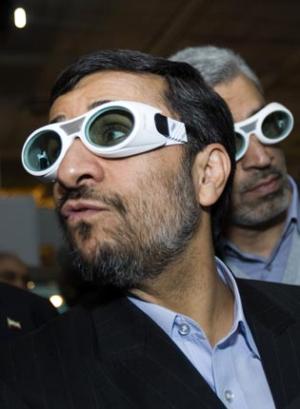Speaking today, Iran’s Supreme Leader Ayatollah Ali Khamenei suggested that the current presidential system in Iran might not last forever, adding that “there would be no problem” in scrapping the office entirely in favor of a parliamentary system.
 Considering the on-again, off-again feud between Khamenei and Iranian President Mahmoud Ahmadinejad, the comments are seen as a warning that the controversial president might find not only his job in danger, but the office entirely.
Considering the on-again, off-again feud between Khamenei and Iranian President Mahmoud Ahmadinejad, the comments are seen as a warning that the controversial president might find not only his job in danger, but the office entirely.
The two engaged in a rare public battle earlier this year, with Ahmadinejad refusing to show up at cabinet meetings in the second half of April to protest being overruled by Khamenei on a cabinet firing. A number of key clerics and top political figures have been openly demanding Ahmadinejad’s ouster since then.
The position of president in Iran doesn’t carry nearly the power it does in other presidential systems, and in practice it is little more than an Interior Ministry with a fancier title. The title, and Ahmadinejad’s tendency to make controversial comments in the international press have been a major headache for Iran’s foreign policy since he was elected.
It might well be that, given Iran’s rather unique political system, a prime minister would be less of a hassle. Such a position would likely be filled with aging MPs with considerable political savvy instead of fiery speakers like Ahmadinejad.


